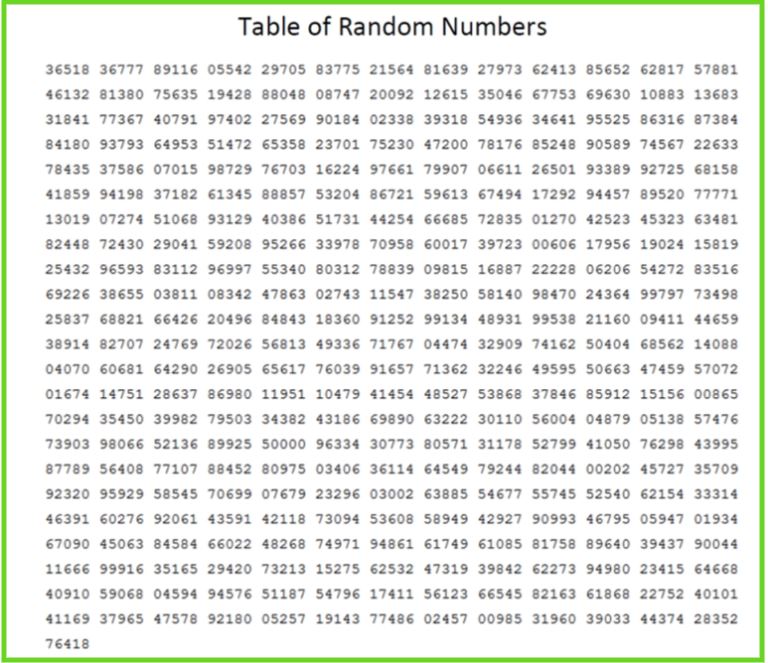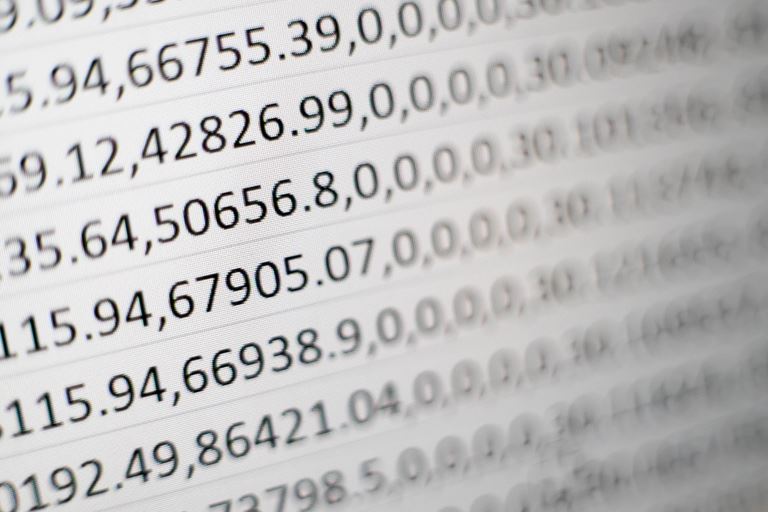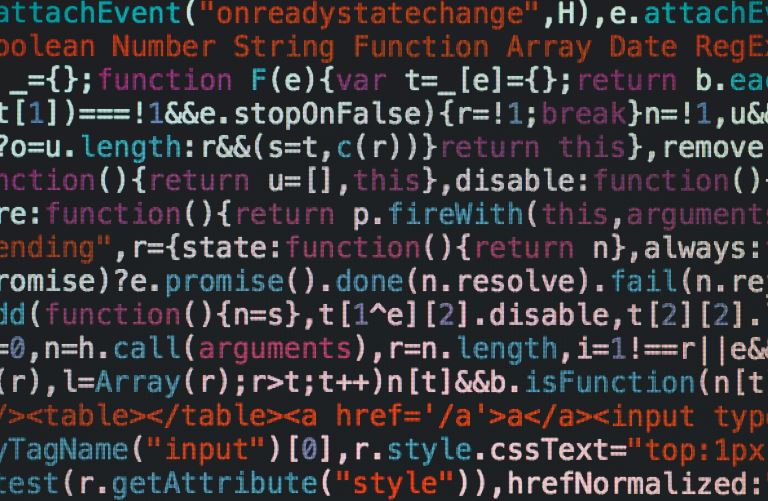Computer Numbers: How Computers Generate Random Numbers
Computer random numbers is a complex topic. It consists of 'yeses' and 'nos'. For a couple of years, I have been studying numbers and I am hereby crafting a well-simplified article to make you understand how computers generate random numbers. So, let's get started.
As a whole, a computer generates random numbers, but not. It depends on how you define randomness. Practical random number generators need to generate unpatterned numbers, and the next random number in the sequence should never be recognized. There are specific cryptographic algorithms that achieve the same at the desired level. However, such an algorithm is a computational process and is not really "true randomization". The process of generating true random numbers involves the development of measurement capabilities in physical processes. For example, wind speed, electromagnetic field activity, thermal or acoustic noise, radioactive decay, etc.
Apart from telling you how computers generate random numbers, I have compiled more on what they are used for, their truth, binary numbers vs random numbers, and crucial information about numbers generators. Read on to understand all you need to know about the process of random number generation. Let's go.
Computer Numbers: How Computers Generate Random Numbers
Computers generate a random number using values spread over a specific interval. These numbers occur in a uniform distribution with equal probability. Computers make use of single-digit decimal numbers to generate random numbers, e.g. {3,4,6,7,8,9}.
Some numbers used in generating random numbers are irrational, and those generated have no co-relation with other numbers. These numbers generation is achievable by using both computer software and hardware.
Computers generate random numbers using data, physical environment, designed algorithms, behavior, and mathematical formulas.
Types of random numbers
There are two types of random numbers.
- True random numbers
- Pseudo-random numbers
True Random Numbers
This random number occurs when a computer considers physical factors and the environment outside the computer. The elements lead to it being random and less biased.
The speed at which the entropy collection occurs depends on the physical variables that may play a role through the measurements.
They are less predictable and convenient but costly. Examples of true random numbers include:
Measuring the decay of an atom using radioactivity and isotopes.
Uses atmospheric noises on keyboards, thermal noise, and electromagnetic waves to collect unpredictable data that generates random numbers.
Pseudorandom numbers
It makes the use of algorithms that generates numbers in a sequence. They are better due to their high speeds in the generation of numbers. It needs high statistical and mathematical knowledge to generate the outputs.
These numbers are better for bulk production.
It has two components; an initial value(seed) and an algorithm. The generator receives the initial value as input, and it generates a new number by applying mathematical formulae to the initial value. It then uses the value generated as the initial value of the upcoming processes. It is usually done repeatedly until the desired discounts and lengths.
This type of random is widespread because it is faster, cheaper, and produces uniform results. They build applications that require high security, like cryptography apps.
It doesn't rely on the physical environment like true random numbers, but natural factors can affect it. They are well designed and use logic for the implementation of the algorithms.
Methods of Generating Random numbers
The random number generator is a software program or a hardware device that can accept inputs from physical phenomenon and generate outputs as unpredictable data. Some of the physical factors include noise, photon e.t.c
Computers use two methods to generate random numbers.
- Physical method
- Computational method
Physical Method
It is one of the oldest methods of generating random numbers. It involves more physique. It is usually engaged in processes that the laws of mechanics can't predict. Examples include the number of ticks, flipping of roulette wheels and dice, mix number balls.
The most outcome of this method is not uniform due to the usage of physical tools and phenomena. When using this method, the engagement of optical methods produces high-speed random numbers with high bandwidth and uniform distribution.
The physical techniques have improved by introducing better ways and tools for producing these numbers. Several methods include lava lamps, Geiger-Muller tubes, and atmospheric noise.
This method also takes advantage of human behavior. Its usage is for those people who generate random behavior, e.g., some computer software can monitor mouse movements and keyboard inputs to create random numbers.
Computational Method.
It is the standard method used by computers to generate random numbers. It involves the use of mathematical and statistical formulas. Most of the random numbers generated are pseudorandom numbers. Pseudorandom numbers use algorithms that provide sequential and long runs numbers.
It makes the use of mathematical formulas like linear congruential function(LCG), which produce numbers with good statistical properties (xi=a0+a1xi-1modMxi=a0+a1xi-1modM).The method also uses the middle square formula, which is easier for beginners, but the final output is poor.
Several languages and libraries used in computer science and programming generate random numbers. Some of these languages include Python, PHP, Ruby, R, and Java, which uses data types like floats to generate Several techniques are numbers. Some programming functions also create random numbers.
These programming languages produce numbers with high quality and with uniform distribution. There are also other sources in the computer science world where you can access random numbers according to the operating systems. Some Linux, Windows, and Mac OS systems can help generate random numbers.
It uses statistical tests like the Chi-square test, Smirnoff test, Marsaglia die-hard tests. Some computational methods that generate random numbers include quantum computing, java applets,random.org websites e.t.c
Another common way is to process computer input collected from users. The data may contain letters and numbers helpful in creating better random numbers.
Let us generate numbers on Stattrek
| 100 Random Numbers |
|---|
| 67278 73004 38218 64150 15377 93379 08072 86645 76725 47835 54203 44760 37853 83031 17878 70948 32653 03539 66631 18853 31443 04654 95831 58623 55031 30204 55238 97220 13773 55368 00573 23740 71642 94481 70074 79715 35284 33854 86061 54434 68083 89582 81500 05253 29226 90358 51562 02904 37762 85283 30189 01813 61665 76684 91654 35409 31899 77921 77127 36436 81477 96203 46233 82270 09527 40397 53615 65226 70352 53846 50501 87874 87492 72174 11262 83348 92791 06107 84977 60666 90453 49278 71993 75032 46110 11043 25491 23157 00881 74295 78045 63567 10435 78273 93186 61919 09057 26377 41965 61309
Specs: This table of 100 random numbers was produced according to the following specifications: Numbers were randomly selected from within the range of 0 to 99999. Duplicate numbers were allowed. This table was generated on 11/24/2021. |
Is Computer Random Number Generator Truly Random?
A random computer generator is truly random. Several ways, mechanisms, and criteria help us develop a random number. The majority of the requirements, methods, formulas generate truly random numbers. The methods discussed justify that they are truly random due to their generation method.
What Random Numbers Are Used For
Random numbers have a lot of usage in different applications and fields. They have extensive use and play an essential role in various industries. Here are some of the benefits:
Cryptography
Cryptography is a method in computing where information and data protection through encryption provides security in communication, e-commerce, behavior, industries.
Cryptography helps in keeping the information confidential, promoting authentication and integrity. Several cryptographic methods commonly used include hash function, symmetric and public-key cryptography.
For applications that need protection by cryptography, truly random numbers are the best as they are of high quality. Pseudo-random numbers are hard to crack and predict due to their high entropy.
Using third-party or public numbers in your cryptographic applications leads to exposure to vulnerabilities as they are not secure compared to the private ones.
Science
In science, there are several applications of random computer numbers. The applications include the following fields
i. Computer science
ii. Physics
iii. Parapsychology
Their usage in computer science to check if some conditionals meet using functions.
In physics fields such as engineering and electronics, generating random numbers is compulsory. It makes the use of Bootstrap and Monte Carlo method.'
Bootstrap involves using sampling by comparing the replacement of the original sample using sampling distribution. It consists of using parameters like mean, median, regression e.t.c.
The Monte Carlo method uses computational algorithms to carry out random sampling to get desired results.
Parapsychology is the field of studying physic phenomena. It makes the use of random numbers in their research.
Statistics
Most statistics and theories run on the usage of randomness. Many elements in statistics involve random numbers.
Some applications of statistical approaches include auditing, generating invoices and receipts.
Many physics experiments rely on statistics to produce results. For example, when analyzing the signals of an X-ray, are there is random noise which requires a lot of statistical analysis to check which noise is genuine and which one is fake.
The analysis methods require deep knowledge of generating random numbers to find the data patterns.
Games and Gambling
Most random number generators have more significant usage in gambling and casino sites. Other games where random generation of numbers occurs include dice, cards, uses, and roulette wheels. These random numbers play a role in the slot machines and equipment.
The computer uses algorithms to generate random numbers. It makes sure that numbers created do not have a similar or do not follow any trend.
Most casinos use pseudo-random numbers as they don't need any input, but instead, you use a particular initial value and algorithm to produce a specific value. This generator helps the sites develop patterns that may lead them to lose more cash by more people winning.
There are some reports that the owners of the casinos and gambling sites misuse the use of random number generation so that the games lose a lot and they make a profit. The governments and bodies in charge have been trying to monitor these by using the trends of the payouts.
Politics
In the past years, countries like Greece used random numbers in selected leaders to promote fairness amongst everyone. The practice was to get away with the way people chose leaders on merit and democracy.
Organizations, political parties, ministries use random numbers generators to choose certain personnel. It has happened in countries like the UK and the United States.
Simulation and modeling
Random numbers influence stimulation and modeling. The numbers should produce behavior that copies what we expect in real life. There is the assumption that specific processes use distribution according to a particular random variable. Most modeling works on probabilistic models.
The standard stimulation is the Monte Carlo simulation. It uses a large group of random numbers in building a model.
It's applied in large complex and computer systems. Any algorithm simulating the behavior of a procedure needs a random number generator.
Random numbers found the simulation by capturing the inputs into models and calculating the best result to test the models.
There are a lot of algorithms responsible for this. Most programming languages in computer science like Python, Matlab come with built-in functions that generate random numbers. Some of the functions include round, rand e.t.c
Another way to achieve simulation is by the use of normal distribution. To get the values in this distribution, we use mean and standard deviation formulae.
s(-2 ln(rand(1)))1/2 cos(2p rand(1)) + µ
There are several benefits of random numbers in stimulation. It helps in mathematical modeling. Random numbers in stimulation monitor the behavior of events and the timing of models. It also aids in the simulation of a discrete system.
Computer games, military lotteries selection of jurors also uses random computer numbers.
What are the NSA and Intel's Hardware Random Number Generator
Intel hardware came up with a random number generator called RdRand. It helps to make the developers' and programmers' jobs easier .and contains instructions that return random numbers from the Intel chip.
The first Intel's random generator worked by collecting thermal noise, amplifying it then changing the clock's period. It uses analog circuiting, which is very slow. The analog circuiting gave a lot of problems in improving their technologies.
Intel later came up with a generator that used digital hardware and digital circuiting. The generator has security and cryptographic protocols as required y the National Institute of Standards and Technology. It improved the safety and quality of random numbers generated.
It generates this at a speed of 3 gigabits per second. The generator takes an input of paired 256-bit entropy samples and transforms them into single 256-bit entropy samples. It takes 16, 32, and 64 values to make it available in the register form.
In recent years Intel added RDSEED instructions used to seed another random generator. It uses thermal noise within silicon to provide an output that consists of bits. Most makeRDSEED instructions generate pseudorandom generators, while RdRand usage has grown in applications requiring high-quality random numbers.
NSA is National Security Agency.NSA is responsible for providing security, cryptographic, and communications intelligence. It's mandated is to oversee the collection and monitoring of information domestically and internationally. It also takes care of the United States communications and information systems.
The Intel hardware contained an NSA backdoor whereby people, hackers, and the government bypassed the encryption and accessed all the data generated random numbers over an SSL connection. Researchers commonly found vulnerabilities on the RdRand brand.
There are several cases where users bypassed the NSA in the gaming lottery, and the winners went on to win several times millions of cash, something that rarely happened.
This NSA backdoor led companies like FreeBSD's stop using RdRand to generate random numbers due to its security issues. Some operating systems like Linux designed a way to avoid the data. Several techniques are from the RdRand chip being so predictable to prevent such attacks.
Can quantum computers generate random numbers?
Yes, quantum computers also generate random numbers. They use quantum computation which generates random numbers. Companies that deal with quantum computing have come up with businesses selling quantum random numbers.
Quantum computing uses quantum mechanics to provide random and probabilistic behaviors that help generate. The existence of Hadmard gate in these computers plays a significant role in generating the numbers using qubits. The qubits create a number with 0 and 1s. It mainly uses logic.
Most of the random numbers generated by quantum computing consist of bias. It is due to the imbalance of photon detection rates between detectors.
The only issue of generating random numbers using these is computers are costly and not locally available like the other ones. Environment factors like noise and radio waves may affect the generation of random numbers, making them numbers less random.
There is still a lot of research on how they can grow these and make them safe for everyone who wants to try. We need to know how they can influence our daily activities.
Conclusion
Computer-generated random numbers play a significant role in different roles and have great importance in the fields. Its the mandate of everyone to learn how to generate random numbers.
It has grown in research, gaming, betting, science, and technology. When creating the numbers, it's better to use different aspects of generating random numbers to achieve the required pattern and sequence.
The disruption of technology and large companies like Intel and Google coming up with chips and Quantum computers raises an eyebrow and shows how important this field is.














